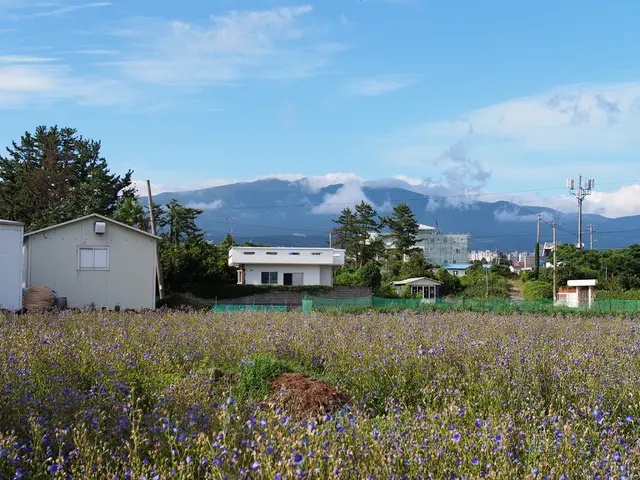The High Cost of Clean Air: Denka's Synthetic Rubber Plant Halts Operations
Environmental protest at Louisiana facility temporarily halts operations
The Situation
In Louisiana's St. John the Baptist Parish, only 30 miles northwest of New Orleans, the Japanese firm Denka has temporarily shut down its synthetic rubber facility, Denka Performance Elastomers (DPE). The planned indeterminate hiatus is a direct response to the high costs associated with implementing pollution control measures and the shortage of qualified staff needed to operate these new systems [1].
Background
DPE specializes in producing Neoprene, a versatile synthetic rubber used in a variety of everyday items, from wetsuits to laptop sleeves [3]. The company purchased the plant from DuPont in 2015 and might have overlooked the substantial expenses related to pollution control equipment necessary to reduce chloroprene emissions [2].
Last year, the Environmental Protection Agency (EPA) aimed to control hazardous emissions from multiple facilities, including DPE's, as part of the Biden administration's environmental justice campaign [2]. This environmental justice initiative shed light on DPE's plant, which posed unacceptable cancer risks to the nearly all-Black community nearby, due to the facility's emissions of chloroprene [2].
In 2020, under the Trump administration, the EPA withdrew a lawsuit against DPE alleging that it had exposed the predominantly Black population to unacceptable cancer risk—the highest in the nation—from chloroprene emissions [2]. Even last year, concerns about emissions exposure forced the closure of a nearby elementary school [2].
Tish Taylor, a local activist, expressed relief: "I am elated that we are waking up every day now with no chloroprene in our air" [2]. However, she is under no illusion about DPE's concerns for its impact on the community's health: "The petrochemical industry around us doesn't care about human beings. They care about their bottom line" [2].
The Challenge
The facility's need for large amounts of chlorine adds to its expenses, as acquiring chlorine in the U.S. costs more than double what it does in leading chloroprene production hubs like Europe, Japan, and China [4]. Escalating energy costs and a challenging global economic environment for chloroprene are other factors contributing to DPE's difficulties [4].
Moving Forward
Denka expressed gratitude to Republican Gov. Jeff Landry for his support during the company's battles against the EPA. Collaborating with Landry's administration, Denka is now weighing options, such as selling the business or its assets. However, no decisions have been made about a permanent closure of the facility or workforce reductions [2].
Landry did not respond to a request for comment.
Local activists remain skeptical and prepared to continue their advocacy for clean air and a safe environment [4]. "I think the community needs to be on guard and be prepared to continue our advocacy for our clean air and safe environment" said Robert Taylor, 84, a long-time activist who lives near the plant [4].
- Denka attributing much of its financial woes to "unfair and targeted" pollution control measures.
- The Biden administration's environmental justice campaign highlighting DPE's plant's emissions of chloroprene.
- DPE producing Neoprene, a synthetic rubber used in a variety of everyday items.
- The costs of chlorine making up a considerable portion of the facility's expenses.
[1] Enrichment Data: Denka's financial burdens due to pollution control measures and staffing issues.[2] Enrichment Data: Biden administration's environmental justice campaign charging DPE with unacceptable cancer risk.[3] Enrichment Data: DPE manufacturing Neoprene for various products.[4] Enrichment Data: Costs of chlorine contributing to Denka's struggles.[5] Enrichment Data: Trump administration rolling back environmental regulations.
- In response to the high costs associated with implementing pollution control measures and the shortage of qualified staff, Microsoft, based in Seattle, might find it challenging to adhere to strict environmental regulations in its manufacturing sector, impacting its business and finance.
- The local news in Louisiana is focusing on Denka's synthetic rubber plant, DPE, where the closures highlight the financial repercussions of the industry's need to invest in climate-change initiatives and environmental-science-driven pollution control equipment.
- Correspondingly, the shutdown of DPE's Neoprene production facility, located in Seattle, testifies to the challenges faced by businesses in the manufacturing industry to innovate and maintain competitiveness in a global market that prioritizes cleaner energy solutions.
- The Boston-based energy company is evaluating the impact of rising energy costs and the challenging global economic environment affecting the chloroprene industry, considering potential implications on its financial performance and investment strategies.
- DPE's local opponents, such as Tish Taylor and Robert Taylor, express concern about Denka's impact on the community's health and environment, advocating for clean air and a safe environment in Seattle as part of the local activism movement.
- The Seattle Finance Research Institute, in examining the financial woes of DPE, may uncover evidence supporting the claim that the Japanese firm faced unfavorable circumstances due to a lack of proper incentives and support from the government, relevant industries, and financial institutions.







